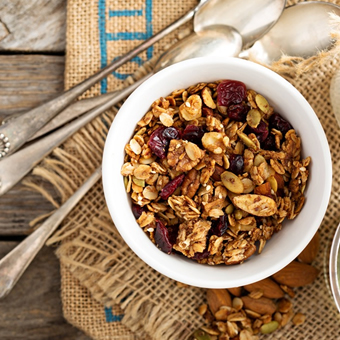Introduction
Private tag specialty foods have come to be progressively prominent in the retail sector. With consumers looking for one-of-a-kind and high-grade products, exclusive tag foods use a tasty remedy that satisfies their taste and meets their expectations. In this short article, we will discover the globe of exclusive tag foods, from their production to their impact on both stores and consumers.
The Increase of Private Label Food Manufacturers Australia
Private tag food suppliers in Australia have experienced considerable development recently. These producers specialize in creating private label foodstuff that accommodate the certain needs and preferences of stores and consumers. With a focus on high quality and technology, they have carved a specific niche for themselves in the affordable food industry.
Benefits of Private Label Food Products
Private label foodstuff use many advantages for both retailers and consumers. Allow's take a better check out several of these benefits:
1. Quality Control
One of the major advantages of private label food products is the control over quality. Merchants can work very closely with private label food suppliers to guarantee that the items fulfill their preferred standards. This enables stores to provide top notch items that align with their brand image.
2. Customization
Private tag food production permits merchants to customize their items according to their target market's choices. Whether it's establishing special flavors or catering to specific dietary demands, exclusive label foods offer adaptability in item development.
3. Competitive Pricing
Retailers can benefit from affordable rates by opting for exclusive label foods. Since there are no intermediaries entailed, the cost financial savings can be passed on to consumers, making these items extra budget-friendly contrasted to nationwide brands.
4. Brand Differentiation
Private label foods help sellers separate themselves from competitors by supplying exclusive products not located elsewhere. This exclusivity produces a feeling of commitment amongst consumers who actively choose these specialty items.
5. Raised Revenue Margins
Private tag food products usually have higher profit margins for stores contrasted to national brand names. With control over the whole production procedure, stores can enhance costs and optimize their profits.
The Process of Private Label Food Manufacturing
Private tag food production entails several essential steps that ensure the manufacturing of high-quality items. Allow's explore the procedure:
1. R & D (R&D)
The R&D stage is critical secretive label food manufacturing. It entails marketing research to private label cheese recognize customer fads, tastes, and preferences. Producers work closely with stores to establish product principles that line up with their brand name and target market.
2. Dish Formulation
Once the concept is completed, manufacturers carry on to recipe formula. This step includes developing a distinct mix of components and tastes that fulfill the preferred taste account. Makers might likewise take into consideration incorporating LSI key words such as "personal tag specialized foods" and "private label food makers Australia" to enhance internet search engine optimization.
3. Testing and Quality Assurance
Before automation begins, manufacturers conduct extensive testing and quality assurance checks. This makes certain that the items fulfill all safety and top quality standards set by regulatory bodies. Private label food suppliers prioritize customer satisfaction by providing items that are secure, delicious, and consistent.
4. Packaging Design
Packaging plays a critical duty in private label foodstuff' success. Producers collaborate with retailers to develop product packaging that mirrors the brand name's values and interest customers. Eye-catching layouts integrated with insightful tags assist attract attention on shop shelves.
5. Production and Distribution
Once the product packaging design is accepted, suppliers start production on a large scale. They follow stringent manufacturing techniques to keep consistency in taste, structure, and overall product quality.
Distribution of private label foods is done with various channels like grocery stores, on the internet systems, or specialized shops. Retailers play an essential role in guaranteeing these items reach their target audience effectively.
FAQs concerning Personal Label Foods
What are personal label foods? Private tag foods are items that are produced by a company offer for sale under a retailer's trademark name. These items offer unique tastes and customization options.


How can stores take advantage of private label food manufacturing? Stores can take advantage of private label food production by supplying special products, managing high quality, and enjoying greater earnings margins.
Are private label food products of high quality? Yes, private label food manufacturers focus on quality assurance to ensure that their items meet the desired requirements set by retailers.
Can retailers tailor private label food products? Yes, merchants have the adaptability to tailor private label foodstuff according to their target audience's preferences.
Are exclusive tag foods much more budget friendly compared to nationwide brand names? Yes, personal tag foods are commonly valued competitively, making them much more affordable for consumers.
Where can consumers discover private label food? Private label foodstuff are offered in numerous retail outlets such as supermarkets, on-line platforms, and specialty stores.
Conclusion
Private tag foods have transformed the retail sector by giving a tasty remedy for both retailers and consumers. With their concentrate on quality control, customization choices, and competitive prices, these specialty products use an unique experience that sets them besides national brands. Sellers can take advantage of the benefits of private label food production to separate themselves and raise their revenue margins. Consumers, on the various other hand, can enjoy top quality items tailored to their preferences. As the need for unique and delicious food grows, personal tag foods remain to prosper in the marketplace, satisfying the advancing preferences of consumers.